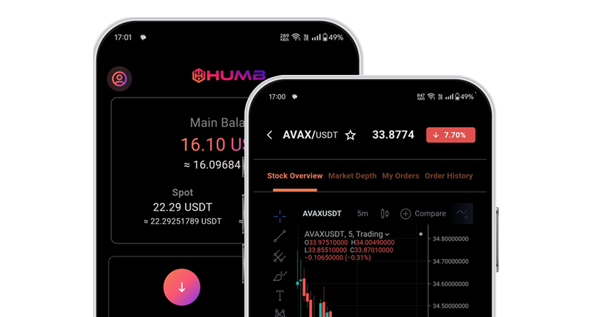Tokenization - Future of the Healthcare Industry
This white paper delves into the ground-breaking realm of healthcare transformation, spotlighting the potent impact of tokenization through platforms like HUMB. We explore how the convergence of blockchain technology, and a dedicated token exchange platform has the potential to revolutionize information exchange, enhance data security, and streamline business processes within the healthcare industry. By adopting assertive strategies and leveraging real-world examples, we unravel the compelling narrative of a future where HUMB becomes the linchpin in reshaping the landscape of healthcare information management.
Tokenization today, stands as the beacon guiding the future of the healthcare industry, promising a transformative shift in the way we manage, share, and leverage health related data. At its core, tokenization involves the representation of health assets, patient records, and medical information as secure and interoperable digital tokens on blockchain platforms. Tokenization is an innovative approach and is poised to be a transformative force in the healthcare industry, offering solutions to several challenges and introducing novel possibilities. At HUMB we believe that TOKENIZATION is considered the next big revolution in healthcare and brings along with it myriad of benefits:
Enhanced Data Security and PrivacyTokenization on a blockchain ensures a high level of data security and privacy. Health data, often sensitive and subject to stringent privacy regulations, can be tokenized, encrypted, and securely stored on the blockchain, reducing the risk of data breaches.
Interoperability and Seamless Data Exchange
Tokenization facilitates the creation of a standardized format for health data representation. This standardized format promotes interoperability, making it easier for different healthcare systems and entities to exchange data seamlessly, leading to improved collaboration and patient care.
Patient-centric Control over Health data
Tokenization empowers patients to have greater control over their health data. Patients can tokenize their medical records and selectively grant access to healthcare providers, researchers, and insurers, ensuring that they retain ownership and control over their sensitive information.
Efficient and Transparent Transactions
The use of tokens can streamline financial transactions within the healthcare ecosystem. This includes payments for healthcare services, insurance claims processing, and even innovative models where patients are rewarded with tokens for participating in research or maintaining a healthy lifestyle.
Facilitation of Research and Collaboration
Tokenization of health data can facilitate secure and transparent collaboration in medical research. Researchers can tokenize datasets, making it easier to share and collaborate on research projects while ensuring compliance with data privacy standards.
Reducing Healthcare Fraud
Tokenization can play a role in reducing healthcare fraud by associating unique tokens with verified identities. This enhances identity verification processes, reducing the risk of fraudulent activities in healthcare transactions.
Transparent and Traceable Supply Chains
In the pharmaceutical and medical supply chain, tokenization can be applied to create a transparent and traceable system. Tokens representing pharmaceuticals or medical supplies can be tracked on the blockchain, ensuring authenticity and reducing the risk of counterfeit products.
Incentivising Healthy Lifestyle
Tokenization allows for the creation of incentive models where individuals are rewarded with tokens for maintaining healthy lifestyles or participating in wellness programs. This can contribute to population health management and preventive care.
Smart Contracts and Automated Processes
Smart contracts associated with tokens can automate various processes in healthcare, such as consent management, insurance claims processing, and compliance with regulatory requirements, improving efficiency and reduced reliance on intermediaries.
In Conclusion
In conclusion, tokenization in the healthcare industry holds immense promise in addressing critical issues related to data security, interoperability, patient control, and efficiency. The ability to represent health-related assets and data as tokens on a blockchain; HUMB is ushering a new era of transparency, collaboration, and patient centric care. As the healthcare industry increasingly adopts blockchain technology and tokenization, has the potential to revolutionize how health data is managed, shared, and utilized. The technology holds the promise of streamlined and transparent transactions, from insurance claims to supply chain management, reducing inefficiencies and fraud, unlocking new frontiers in healthcare research, fostering collaboration and innovation.
HUMB’s vision of a tokenized healthcare future involves a patient-centric, secure, and interconnected ecosystem that revolutionizes how we approach health information, ultimately leading to improved patient outcomes and a more efficient and equitable healthcare industry.





